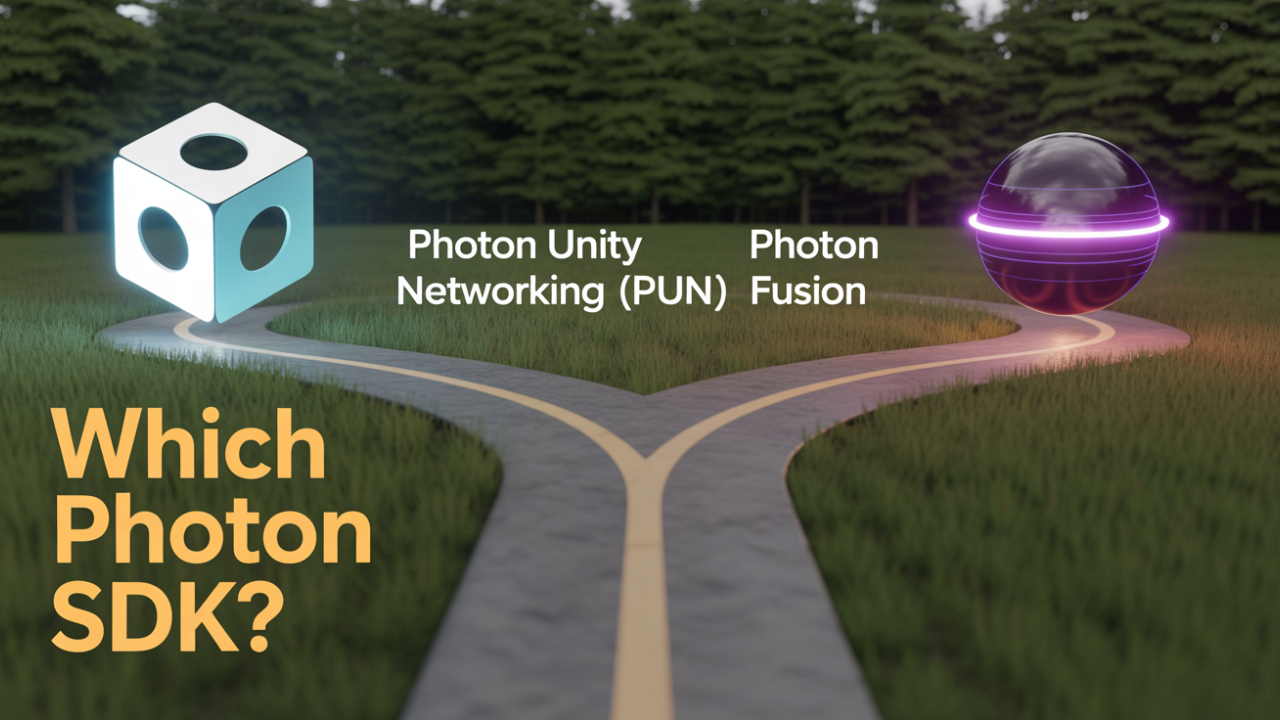
Photon is one of the most popular multiplayer networking solutions for Unity developers. Whether you're building a real-time shooter, card game, racing game, or MMO, Photon offers multiple versions—each optimized for different game types, scale, and complexity. In this post, we’ll break down: All major Photon versions available for Unity What each version is best for Real-world examples of games built using each version A clear summary and recommendation guide
Photon is one of the most popular multiplayer networking solutions for Unity developers. Whether you're building a real-time shooter, card game, racing game, or MMO, Photon offers multiple versions—each optimized for different game types, scale, and complexity.
In this post, we’ll break down:
All major Photon versions available for Unity
What each version is best for
Real-world examples of games built using each version
A clear summary and recommendation guide
Photon is a suite of networking SDKs built by Exit Games that powers real-time multiplayer experiences across platforms. Unlike traditional servers you manage yourself, Photon offers cloud-hosted (and self-hosted) networking backends with matchmaking, room management, and event syncing.
Photon offers four major networking solutions compatible with Unity:
Photon PUN (Photon Unity Networking)
Photon PUN 2
Photon Realtime
Photon Fusion
Photon Quantum
Let’s explore each.
Status: Deprecated
Type: High-level API
Use Case: Casual synchronous games
Architecture: Room-based (client-authoritative)
2D/3D turn-based or synchronous games
Small room-based multiplayer games (e.g., Tic Tac Toe, simple co-op)
A basic 2-player Unity chess game with synced moves.
Not optimized for competitive real-time gameplay
Deprecated and replaced by PUN 2
Status: Supported
Type: High-level API (layered over Realtime)
Use Case: Quick multiplayer prototypes and small games
Architecture: Client-authoritative, room-based
Casual games (card games, board games)
Turn-based or light real-time games
Rummy, Ludo, or a multiplayer quiz app
Super easy to set up
Integrated matchmaking and room handling
Excellent documentation and community
High-frequency real-time games like FPS or racing
Cheating can be a concern (client-authority model)
Status: Supported
Type: Lower-level API
Use Case: Custom multiplayer architecture
Architecture: Client-authoritative or hybrid
Developers who need more control than PUN
Backend integration with matchmaking or custom logic
A cross-platform card battle game using your own backend
Mobile games with social lobbies and friends list
More control over networking and events
Backend extensibility (Photon Server SDK available)
Status: Active and growing
Type: High-performance real-time networking
Use Case: Competitive real-time games
Architecture: Client-hosted, shared-host, or dedicated server
FPS, Battle Royale, Racing, Platformers
Games that need deterministic sync or state rollback
Kart racing game with real-time combat and boosts (like Sanjay Dey’s Race Jackpot Rally)
Multiplayer platformer or PvP shooter
Lag compensation, input prediction, rollback netcode
Host migration and simulation
Status: Premium / Enterprise
Type: Deterministic ECS-based simulation
Use Case: Competitive eSports-grade real-time games
Architecture: Server-authoritative (deterministic)
Frame-accurate multiplayer games
eSports games, fighting games, physics-heavy real-time games
MOBA, RTS, Fighting games (like Super Smash Bros)
eSports-grade card games where fairness and frame-locking matter
Fully deterministic, no lag cheating
Real-time rollback and simulation accuracy
Here’s a quick guide:
Use PUN 2 for:
Card games, turn-based games, simple real-time interactions
Use Photon Realtime if:
You need deeper backend integration, analytics, or matchmaking
Use Photon Fusion for:
High-speed action games, e.g., Kart Racing, Shooters, Platformers
Use Photon Quantum when:
You’re building AAA-grade multiplayer requiring rollback and deterministic simulation
Photon’s networking stack scales from prototypes to AAA production. Choosing the right version depends on your game's genre, real-time requirements, and technical goals.
For most indie and mobile games, start with PUN 2 or Fusion. Move to Quantum only if your game needs deterministic lockstep simulation and you're building for esports scale.


